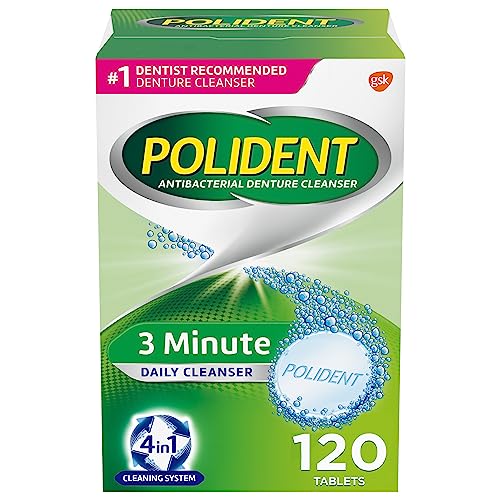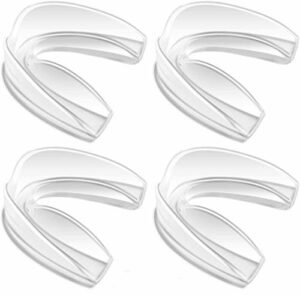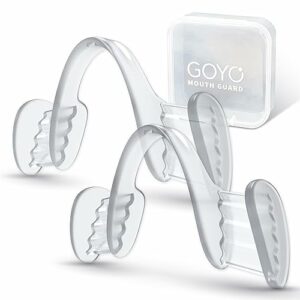In this step-by-step guide, we will show you how to maintain healthy gums with dentures. We understand the challenges that come with wearing dentures, and our aim is to provide you with practical tips and techniques to keep your gums healthy and comfortable. Whether you are a new denture wearer or have been using them for a while, this guide will help you navigate the world of denture care with ease and confidence.
Top Picks for Denture Care Solutions
Choosing the right denture cleaning products
Choosing the right denture cleaning products is crucial for maintaining gum health. It is important to select products that are safe and effective, as the gums are delicate and sensitive. Using appropriate denture cleaning products will ensure that harmful bacteria and plaque are removed without causing any damage to the gums. To do this, carefully read the labels of the products, looking for those that are specifically designed for dentures and recommended by dental professionals. Additionally, opt for products that are gentle yet effective in removing stains and odors, as these can often be a concern with dentures. By choosing the right denture cleaning products, you can maintain both the cleanliness of your dentures and the health of your gums.
Brushing your dentures daily
To properly brush your dentures and remove food particles and plaque, start by rinsing them under warm water to remove any loose debris. Then, use a soft-bristled toothbrush or denture brush to gently scrub all surfaces of the dentures, including the inner and outer areas. Pay special attention to massaging your gums during the process to stimulate blood circulation and maintain healthy oral tissues. Rinse your dentures thoroughly after brushing to remove any remaining toothpaste or cleaner residue.
Soaking dentures overnight
- Soak your dentures overnight in a denture cleaner or a mild solution to keep them clean and maintain gum health.
- This simple practice has several benefits:
- It helps remove food particles, stains, and bacteria that may have accumulated on the dentures during the day.
- Soaking dentures overnight can also help prevent the build-up of plaque, which can lead to gum disease.
- It keeps your dentures feeling fresh and odor-free, contributing to your overall oral hygiene.
- To soak your dentures overnight:
- Remove the dentures from your mouth and rinse them thoroughly under running water to remove any loose debris.
- Fill a container or a denture case with enough denture cleaner or a mild solution, following the product instructions.
- Place your dentures in the solution and ensure they are fully submerged.
- Let them soak overnight, allowing the cleaner or solution to work its magic.
- In the morning, remove the dentures from the solution and rinse them again under running water before wearing them.
- By following this simple practice, you can ensure that your dentures stay clean and your gum health remains optimal.
Properly handling dentures during cleaning
When handling dentures during cleaning, it is crucial to be gentle and cautious to prevent any damage. To ensure safety, always start by thoroughly washing your hands with soap and water. Next, place a soft towel or basin underneath the dentures to provide a cushioned surface in case they slip from your grasp. By following these simple steps, you can minimize the risk of accidents and maintain the longevity of your dentures.
Cleaning your mouth and gums
Maintaining good oral hygiene is essential for overall dental health, even if you have dentures. Brushing and flossing your natural teeth, as well as massaging your gums, helps prevent plaque buildup, gum disease, and bad breath. To brush, hold your toothbrush at a 45-degree angle and use gentle, circular motions to clean all surfaces of your teeth. Don’t forget to brush your tongue too. For flossing, use a gentle back-and-forth motion, making sure to get between each tooth. Finally, to massage your gums, use your clean fingers to gently rub them in a circular motion.
Regular dental check-ups
Schedule regular dental visits to ensure proper denture fit, gum health, and address any potential issues. Regular check-ups help us maintain a healthy smile by allowing our dentist to monitor the condition of our dentures and gums. By making these appointments, we can catch any problems early on and receive the necessary treatment to prevent further complications.
Avoiding harmful habits
To protect your dental health, we strongly advise against engaging in harmful habits such as smoking, excessive alcohol consumption, and eating sticky or hard foods that can damage dentures and have a negative impact on gum health. Quit smoking to reduce the risk of oral cancer and gum disease. Limit your alcohol intake to maintain the health of your teeth and gums. Avoid sticky or hard foods that can cause dentures to break or damage your gums. By avoiding these harmful habits, you can maintain a healthy and beautiful smile.
Storing dentures properly
To properly store your dentures overnight, follow these steps:
- Clean your dentures thoroughly using a denture brush and a mild denture cleaner or toothpaste.
- Rinse your dentures with water to remove any remaining cleaning solution.
- Fill a clean, designated container with enough water or denture solution to fully submerge your dentures.
- Gently place your dentures in the container, making sure they are fully covered by the water or solution.
- Close the container securely to prevent any leakage or contamination.
- Store the container in a safe and clean place, away from children or pets.
- In the morning, remove your dentures from the container and rinse them thoroughly before wearing them.
By following these simple steps, you can ensure that your dentures stay hydrated, maintain their shape, and remain in good condition for longer.
Maintaining Gum Health with Dentures
In conclusion, we have explored a comprehensive guide on how to keep your gums healthy with dentures. We have discussed the crucial steps such as maintaining good oral hygiene, regularly cleaning and soaking your dentures, and visiting your dentist for routine check-ups. It is vital to follow these practices diligently to ensure the long-term health and comfort of your gums. By taking care of your gums, you can enjoy the benefits of dentures while minimizing the risk of gum infections and discomfort. Remember, healthy gums lead to a confident smile and overall well-being. So, let’s prioritize our gum health and embrace the joys of denture-wearing with a healthy and happy mouth.
Maintaining Optimal Oral Health
Taking Care of Your Dentures
- First, make sure to handle your dentures with care to avoid any damage or breakage. Hold them over a folded towel or a sink filled with water to prevent them from falling and breaking
- Before cleaning your dentures, rinse them with water to remove any loose food particles or debris. This will help in ensuring effective cleaning and preventing any discomfort
- Use a soft-bristled toothbrush or a denture brush to clean your dentures thoroughly. Avoid using regular toothpaste as it can be too abrasive for dentures. Instead, use a mild denture cleaner or a mild liquid dish soap
- Gently brush all surfaces of your dentures, including the teeth, gums, and any attachments. Pay special attention to removing any food or plaque buildup. Avoid applying excessive pressure while brushing to prevent damaging the dentures
- After brushing, rinse your dentures thoroughly with water to remove any cleaning solution or residue. Make sure to rinse your mouth as well to remove any remaining denture cleaner
- It is recommended to soak your dentures in a denture cleaner or a mild denture solution overnight. This helps in removing any stubborn stains, bacteria, or odors. Follow the instructions on the denture cleaner packaging for the recommended soaking time
- Remember to brush your gums, tongue, and palate with a soft-bristled toothbrush every morning before inserting your dentures. This helps in stimulating circulation and maintaining oral health
- If you notice any cracks, chips, or loose attachments on your dentures, it is essential to visit your dentist or prosthodontist for professional repairs. Avoid attempting to fix or adjust them yourself as it may lead to further damage
- Lastly, it is crucial to maintain good oral hygiene even if you have dentures. Brush your remaining natural teeth, if any, twice a day with fluoride toothpaste and floss regularly to keep your gums and oral tissues healthy. Regular dental check-ups are also recommended to ensure the overall health of your mouth and dentures
Taking care of your dentures: Frequently Asked Questions
What are some signs that indicate it’s time for a denture adjustment or repair?
Sure, we can provide you with some signs that may indicate it’s time for a denture adjustment or repair:
- Discomfort or pain: If you’re experiencing ongoing discomfort, sore spots, or pain while wearing your dentures, it’s a sign that adjustments may be needed. Ill-fitting dentures can lead to irritation and soreness.
- Difficulty chewing or speaking: If you find it increasingly challenging to chew or speak properly with your dentures, it could be an indication that they need adjustment. Dentures that don’t fit properly can affect your ability to eat and communicate comfortably.
- Loose or slipping dentures: If your dentures feel loose or frequently slip out of place, it may be time for an adjustment. This can happen due to changes in the shape of your jawbone over time, leading to a poor fit.
- Changes in facial appearance: Dentures that no longer fit properly can alter your facial appearance. If you notice changes like sunken cheeks, wrinkles around the mouth, or a protruding jaw, it may be a sign that your dentures need adjustment.
- Gum or mouth irritation: If your gums become red, swollen, or irritated while wearing dentures, it could be due to an ill-fitting appliance. Adjustments or repairs may be necessary to improve the comfort and health of your mouth.
- Difficulty keeping dentures in place with adhesive: If you find yourself relying heavily on denture adhesives to keep your dentures in place, it may indicate that the fit is not optimal. Seeking a denture adjustment can help improve stability and reduce the need for adhesives.




![How to Keep Your Gums Healthy with Dentures 3 Cushion Grip Thermoplastic Denture Adhesive for Refitting and Tightening Loose Dentures [Not a Glue Adhesive, Acts Like a Soft Reliner] (1 Oz) Hold Dentures for Up to 4 Days.](https://m.media-amazon.com/images/I/417lMMk2v-L.jpg)









